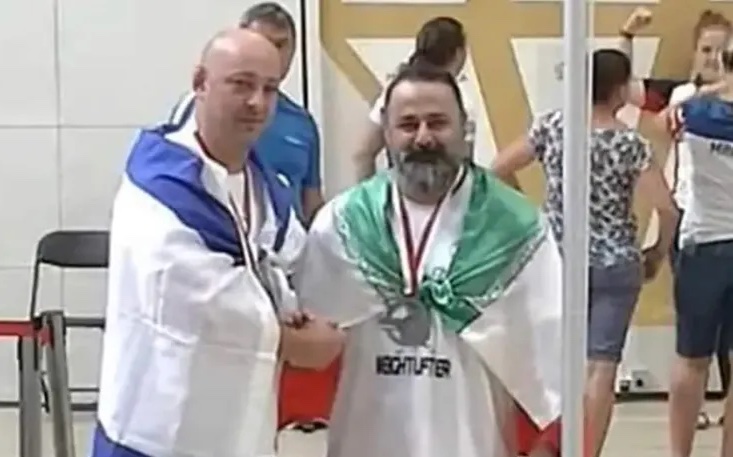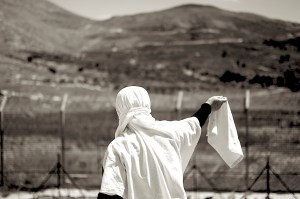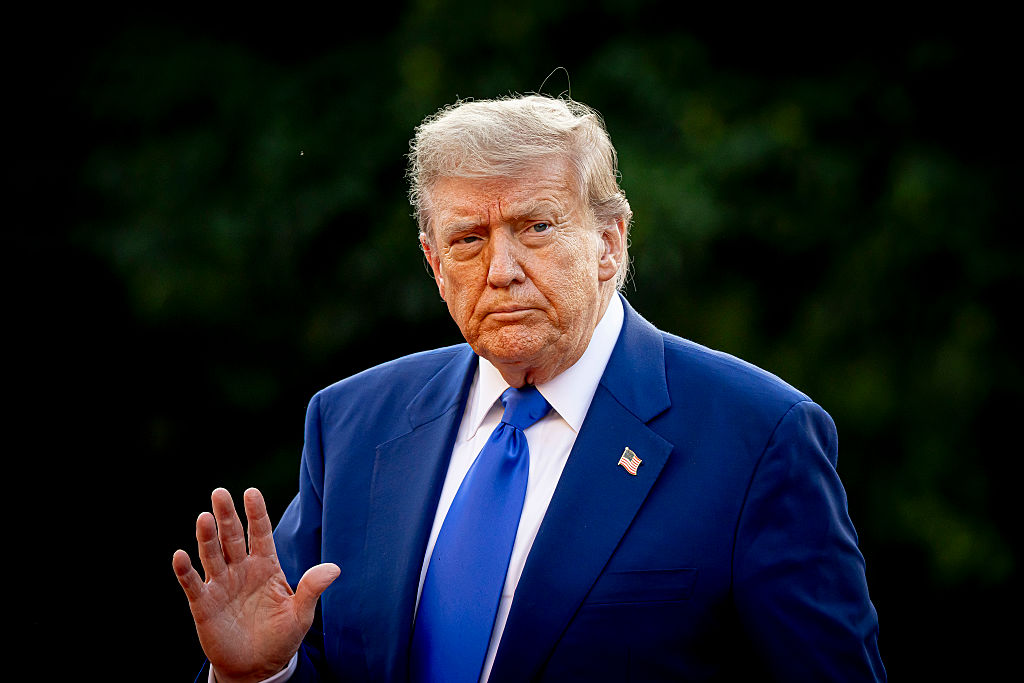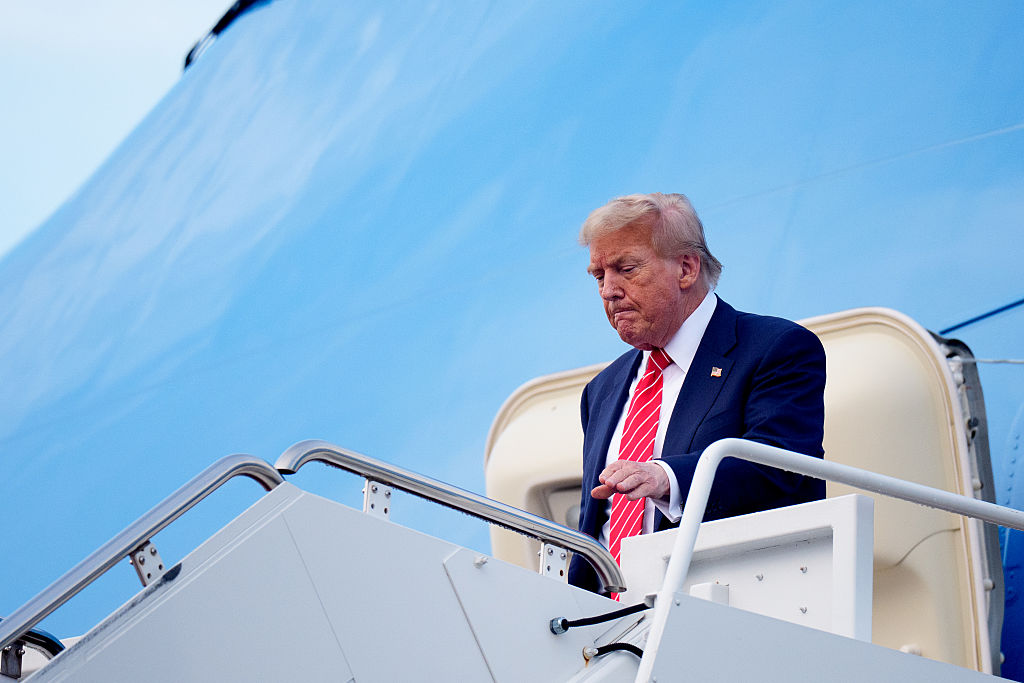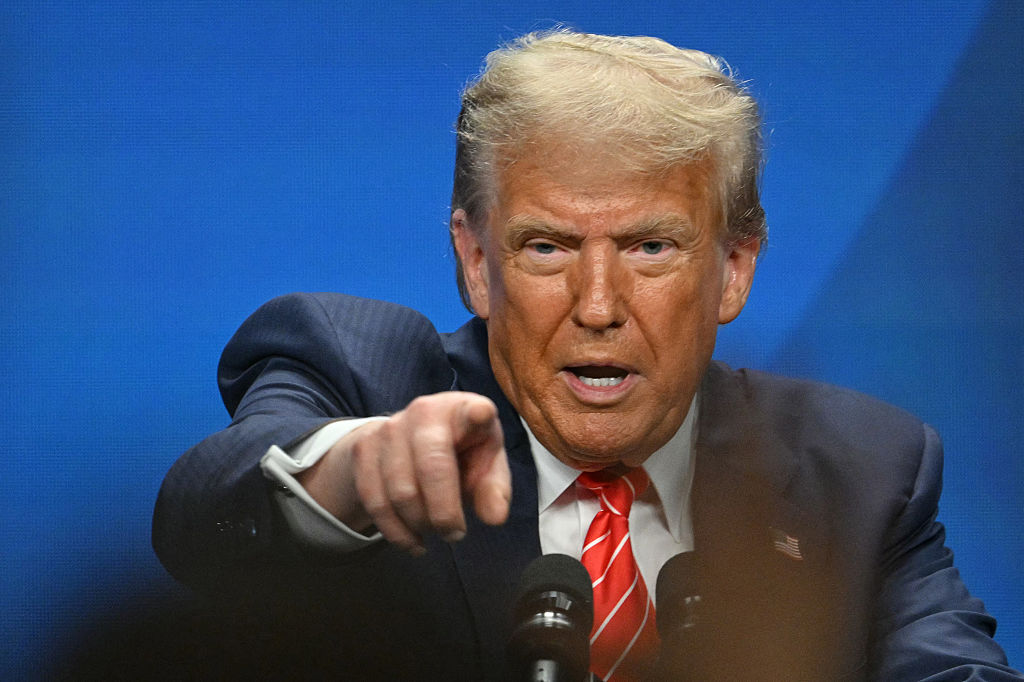One is an oppressive regime that guns down its own people, promotes a radical Islamist theology and hangs gay people from cranes. The other is a liberal democracy that protects the rights of minorities, upholds the freedoms of speech and assembly and grants equality to women and gay people.
Yet when weightlifters from the two countries shook hands after a tournament, it was the oppressive regime that reacted with fury.
Courage is readily found among Iranian sportspeople, as it is found among the Iranian people themselves
I speak, of course, of Iran and Israel. Such is the intensity of the Israelophobia at the heart of the Islamic republic that when its strongman, Mostafa Rajai, clasped the hand of his Israeli counterpart after winning a silver medal at the World Masters Championship in Poland, he was given a lifetime ban from competing.
Rajai extended his hand in defiance of the regime. He knew that his actions would have consequences — potentially more serious ones than a lifetime sporting ban — both for himself and his family. Clearly, this was an act of profound bravery.
Courage is readily found among Iranian sportspeople, as it is found among the Iranian people themselves, as the last year of extraordinary protests has shown. Just as so many young people have risked and often sacrificed their lives to stand up to their oppressors, competitors from the country have taken a stand on the international stage against the regime they rightly loathe.
Four years ago, Iranian judo expert Saeid Mollaei was forced by the ayatollahs to forfeit a match against judoka Sagi Muki, who is Israeli. Mollaei spoke out against the theocracy and fled to Europe. He has since visited Israel and become firm friends with Muki. When he won silver at the 2021 Tokyo Olympics, representing Mongolia, he dedicated the medal to Israel, even speaking in Hebrew to thank the country for its support.
Similarly, in 2019, Iranian chess prodigy Alireza Firouzja fled his homeland after being told he could not participate in a tournament over concerns he would be matched against an Israeli.
Let’s not overemphasize this. Polls are unreliable, but according to experts, at least 20 percent of Iranians support the poisonous regime, many of those fanatically. And although the 80 percent majority has been opposed to the ayatollahs for decades, it has been unable to overthrow them, mainly because of the regime’s extreme brutality and sadism, but also because of a failure to unite and organize, especially in the diaspora.
The fact remains, however, that most Iranians feel very warmly about the Jewish state. They have no quarrel with it; the two nations do not share a land border or territorial dispute, and there are many cultural similarities. Both are ancient and sophisticated civilizations, with rich philosophical, literary and religious traditions. Both place great value on education and the life of the mind. Both have large diasporas that are broadly middle-class. Both have strong family bonds — and tend to be warm and broad-minded. Both love food very much.
In 2012, an Israeli graphic designer Ronny Edry started a social media phenomenon when he posted a picture of himself and his daughter alongside a graphic saying, “Iranians, we love you.” This snowballed into a campaign in which thousands of Israelis shared selfies holding “I heart Iran,” and thousands of Iranians reciprocating with “I heart Israel” signs, though mostly with their faces cropped out. This was the true Vox Populi — though it was a long way from Vox Dei in the theocratic republic.
Most observers in the West, even in the higher echelons of diplomacy and espionage, fail to understand the true mindset of the Iranian regime. The dominant thinking tends to be that the country will act rationally, in its own interests; so if it made a nuclear weapon, for instance, it would never use it because this would assure its destruction.
This, however, is to misunderstand the mentality of the regime. The nature of rational behaviour depends upon the ideological framework that surrounds it. In Britain, for example, the Remainer elites were unable to step outside of their worldview that revolved around economic flourishing. As a result, they tried to persuade voters that a vote for Brexit was a vote for economic decline, failing to appreciate that for much of the British public, values of sovereignty and national identity are worth more than money. Both sides were thinking rationally, but the parameters were different.
The same dynamic, though radicalized by extremism and magnified by larger cultural differences, defines the difference between the western diplomatic corps and their Iranian counterparts. The ayatollahs believe in an extreme Islamist ideology in which a devastating world war will pre-empt the coming of the Mahdi, or Twelfth Imam, who has been concealed by God until the end times.
They believe that when the world is in flames, this Messianic figure will emerge. He will assemble a group of 313 trusted lieutenants who will wage war on the infidels, and rule the globe in 313 cantons after their victory.
The principal obstacle to the coming of the Mahdi, they believe, is the existence of Israel and the Jews. And the three pillars of their campaign are nuclear weapons, overseas militia and an arsenal of ballistic missiles. Make no mistake: they have a strategy and they are pursuing it. Within this worldview — which appears absurd to the secular western mind — it is entirely rational to wage nuclear war on the Jewish state. After all, that way lies the Messiah.
Members of the IRGC are selected for advancement not by military prowess but ideological purity. As a result, the more influential an officer becomes in the movement, the more fanatical they are. It is difficult to overemphasize the extent to which this fanaticism is driving the actions of the Iranian republic, and especially its shock troops, the Islamic Revolutionary Guard Corps, which — as Britain’s security establishment has revealed — is the UK’s most serious domestic threat. One alarmingly senior official told me recently that Iran was “the one thing that keeps me up at night.” And if I knew what they knew, “it would keep you up at night, too.”
The civilized, intelligent, sensitive, cultured, warm-hearted Iranian public hate the regime and its agents much more than anybody else. For more than forty years, they have groaned under its yoke, existing under constant surveillance, seeing friends and family members imprisoned, tortured and executed for the most minor of ideological indiscretions, and looking on in poverty while the regime funnels whatever funds it has towards implementing its vision of Mahdism overseas via the IRGC.
In 2020, after the Mossad assassinated nuclear scientist Mohsen Fakhrizadeh — using, as I revealed at the time, an automated gun weighing about a ton — two banners appeared on a prominent bridge nearby. The first was a handmade sign saying, “thank you Mossad.” The second was an Israeli flag.
This was more than a stunt by a small number of near-suicidal activists. From the point of view of the Iranian public, Israel is the only country that truly understands the nature of their rulers, and the only state willing to do something about it. This creates an informal alliance between the Iranian people and Israel, which of course makes Mossad’s operations in the country, which take place weekly under the radar, rather easier.
In the aftermath of any Israeli attack on Iranian forces in Syria, there is an outpouring of jubilation on Farsi social media. Many passers-by in Iran, where Israeli flags have been painted on the floor to be trampled on, can be seen carefully avoiding them. And on Quds Day, the regime’s annual carnival of hatred where Israeli and American flags are burned, many Iranians choose to stay at home.
Under Joe Biden’s marshmallow approach to the theocracy — which involved an egregious handout of $6 billion to Iran this month — the regime is edging ever closer to full nuclearization. Nonetheless, there remains hope that before the apocalypse, the regime will crumble from within and Iranians will finally be free to exist in a manner befitting their history.
The courageous actions of the young street protesters who have set the country on fire over the past year gives the world great cause for optimism. As do the military abilities of Israel, both clandestine and overt. And as does the handshake of a weightlifter.
This article was originally published on The Spectator’s UK website.



